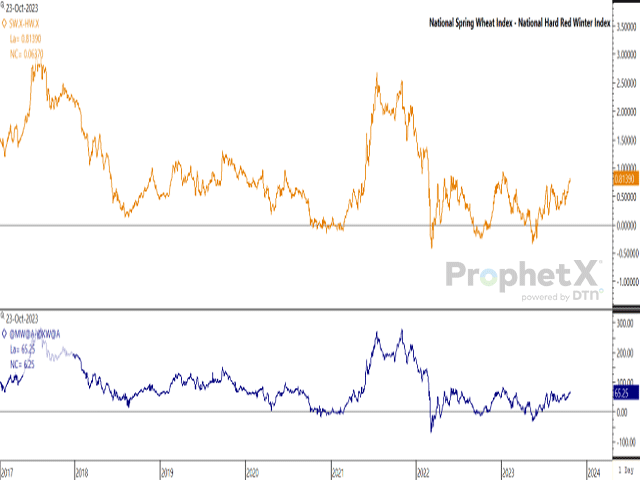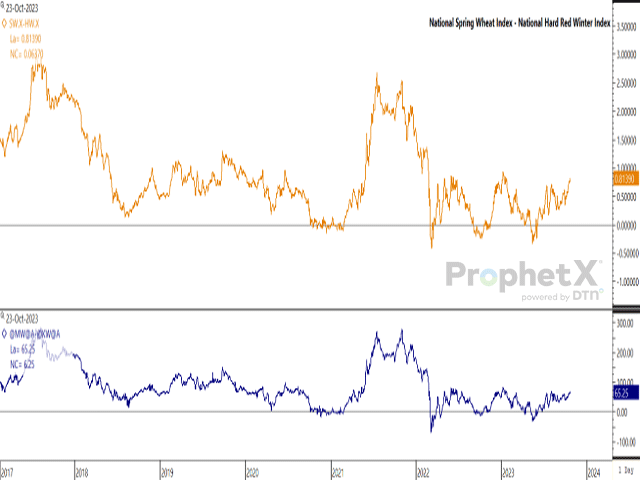Canada Markets
The HRS/HRW Spread Strengthens
Cash market spreads, or the spread between the National Spring Wheat Index and the National Hard Red Winter (HRW) Index has more than doubled from 34.7 cents on Oct. 2 to 81.4 cents as of Oct. 23. This move has taken out highs reached in July and August, while the widest spread seen since Jan. 10 when this spread was reported at 93.5 cents.
The daily average of this spread is calculated at 23 cents for 2022-23, while the five-year average, based on the Aug.1-July 31 Canadian crop year is calculated at 43 cents.
P[L1] D[0x0] M[300x250] OOP[F] ADUNIT[] T[]
The focus on this spread lies with the idea that changes in this spread are seen as the result of changing demand for high protein wheat (HRS) relative to the lower protein HRW. This demand could also spill over into the Prairies as mills scramble to source grain that meets their protein requirements.
This signal should present itself more quickly in cash market trade, as buyers do what is needed to meet demand. The lower study shows the continuous active futures spread, with the MGEX December contract closing 12 1/2 cents above the December HRW contract on Oct. 24. This is down slightly from the 67 cents reached in the previous session, while nearing the high of 69.75 cents reached in August of this year. The January high is 82 3/4 cents, which is the widest spread seen since February, 2022.
Cliff Jamieson can be reached at cliff.jamieson@dtn.com
Follow him on X, formerly known as Twitter, @CliffJamieson
(c) Copyright 2023 DTN, LLC. All rights reserved.






Comments
To comment, please Log In or Join our Community .